1. Tata Steel-Corus: $12.2 billion
Image: B Mutharaman, Tata Steel MD; Ratan Tata, Tata chairman; J Leng, Corus chair; and P Varin, Corus CEO.
Photographs: Toby Melville/Reuters
On January 30, 2007, Tata Steel purchased a 100% stake in the Corus Group at 608 pence per share in an all cash deal, cumulatively valued at $12.2 billion.
It made Tata Steel the world's fifth-largest steel group.
2. Vodafone-Hutchison Essar: $11.1 billion
Image: The then CEO of Vodafone Arun Sarin visits Hutchison Telecommunications head office in Mumbai.
Photographs: Punit Paranjpe/Reuters
On February 11, 2007, Vodafone agreed to buy out the controlling interest of 67% held by Li Ka Shing Holdings in Hutch-Essar for $11.1 billion.
3. Bharti-Zain Deal: $10.7 billion
In March 2010, Bharti entered into a legally binding definitive agrrement with Zain Group ("Zain") to acquire the sale of 100% of Zain Africa BV , its African Business excluding its operations in Morocco and Sudan, based on an enterprise valuation of USD 10.7 billion.
Under the agreement, Bharti will acquire Zain's African mobile service operations in 15 countries with a total customer base of over 42 million.
4. Hindalco-Novelis: $6 billion
Image: Kumar Mangalam Birla (center), chairman of Aditya Birla Group.
Photographs: Punit Paranjpe/Reuters
Aluminium and copper major Hindalco Industries, the Kumar Mangalam Birla-led Aditya Birla Group flagship, acquired Canadian company Novelis Inc in a $6-billion, all-cash deal in February 2007.
The acquisition made Hindalco the global leader in aluminium rolled products and one of the largest aluminium producers in Asia.
5. Ranbaxy-Daiichi Sankyo: $4.5 billion
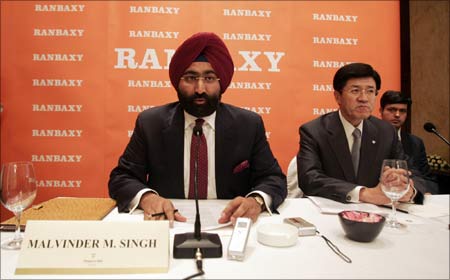
Image: Malvinder Singh (left), ex-CEO of Ranbaxy, and Takashi Shoda, president and CEO of Daiichi Sankyo.
Photographs: Danish Ismail/Reuters
Marking the largest-ever deal in the Indian pharma industry, Japanese drug firm Daiichi Sankyo in June 2008 acquired the majority stake of more than 50 per cent in domestic major Ranbaxy for over Rs 15,000 crore ($4.5 billion).
The deal created the 15th biggest drugmaker globally.
6. ONGC-Imperial Energy: $2.8 billion
Image: Imperial Oil CEO Bruce March.
Photographs: Todd Korol/Reuters
The Oil and Natural Gas Corp took control of Imperial Energy Plc for $2.8 billion, in January 2009, after an overwhelming 96.8 per cent of London-listed firm's total shareholders accepted its takeover offer.
7. NTT DoCoMo-Tata Tele: $2.7 billion
Image: A man walks past a signboard of Japan's biggest mobile phone operator NTT Docomo Inc. in Tokyo.
Photographs: Stringer/Reuters
Japanese telecom giant NTT DoCoMo picked up a 26 per cent equity stake in Tata Teleservices for about Rs 13,070 crore ($2.7 billion) in November 2008.
With a subscriber base of 25 million in 20 circles DoCoMo paid Rs 20,107 per subscriber to acquire the stake.
DoCoMo picked up the equity through a combination of fresh issuance of equity and acquisition of shares from the existing promoters.
8. HDFC Bank-Centurion Bank of Punjab: $2.4 billion
Image: Rana Talwar (rear), Centurion Bank of Punjab chairman , and Deepak Parekh, HDFC Bank chairman.
Photographs: Arko Datta/Reuters
HDFC Bank approved the acquisition of Centurion Bank of Punjab for Rs 9,510 crore ($2.4 billion) in one of the largest mergers in the financial sector in India in February, 2008.
CBoP shareholders got one share of HDFC Bank for every 29 shares held by them. Post-acquisition, HDFC Bank became the second-largest private sector bank in India.
9. Tata Motors-Jaguar Land Rover: $2.3 billion
Image: A Union flag flies behind a Jaguar car emblem outside a dealership in Manchester, England.
Photographs: Phil Noble/Reuters
Creating history, one of India's top corporate entities, Tata Motors, in March 2008 acquired luxury auto brands -- Jaguar and Land Rover -- from Ford Motor for $2.3 billion, stamping their authority as a takeover tycoon.
Beating compatriot Mahindra and Mahindra for the prestigious brands, just a year after acquiring steel giant Corus for $12.1 billion, the Tatas signed the deal with Ford, which on its part chipped in with $600 million towards JLR's pension plan.
10. Sterlite-Asarco: $1.8 billion
Image: Vedanta Group chairman Anil Agarwal.
Photographs: Rediff Archives
Anil Agarwal-led Sterlite Industries Ltd's $1.8 billion Asarco LLC buyout deal is one of the biggest-ever merger and acquisitions deal involving an Indian firm, and the largest so far in 2009.
This is despite the deal size falling by almost $1 billion, from a projected estimate of $2.6 billion in May 2008, due to devaluation of mining assets and a sharp fall in copper prices.
Sterlite, the Indian arm of the London-based Vedanta Resources Plc, acquired Asarco in March 2008.
11. Suzlon-RePower: $1.7 billion
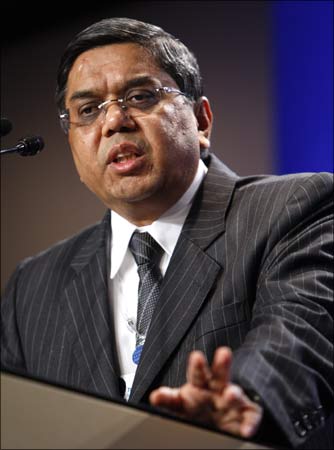
Image: Tulsi Tanti, chairman and managing director of Suzlon Energy Ltd.
Photographs: Chip East/Reuters
Wind power major Suzlon Energy in May 2007 acquired the German wind turbine manufacturer REpower for $1.7 billion.
REpower is one of Germany's leading manufacturers of wind turbines, with a 10-per cent share of the overall market.
Suzlon is now the largest wind turbine maker in Asia and the fifth largest in the world.
12. RIL-RPL merger: $1.68 billion
Image: Reliance Industries' chairman Mukesh Ambani.
Photographs: Adnan Abidi/Reuters
Reliance Industries in March 2009 approved a scheme of amalgamation of its subsidiary Reliance Petroleum with the parent company. The all-share merger deal between the two Mukesh Ambani group firms was valued at about Rs 8,500
Post-merger, RPL shareholders received one fully paid equity share of Rs 10 each of the company for every 16 fully paid equity shares of Rs 10 each of RPL held by them.
The RIL-RPL merger swap ratio was at 16:1. The merger became effective from April 1, 2008.


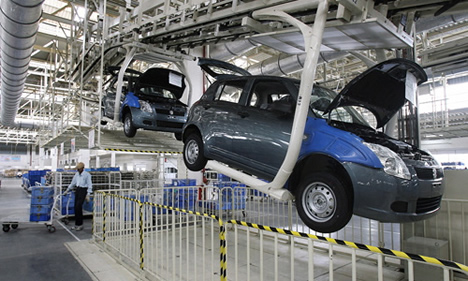




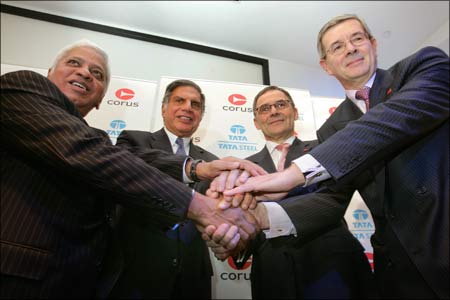
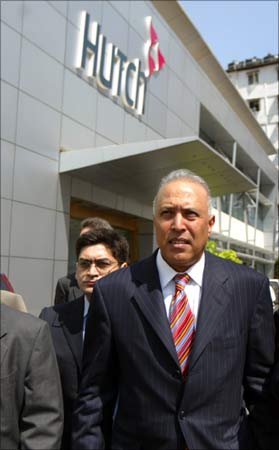



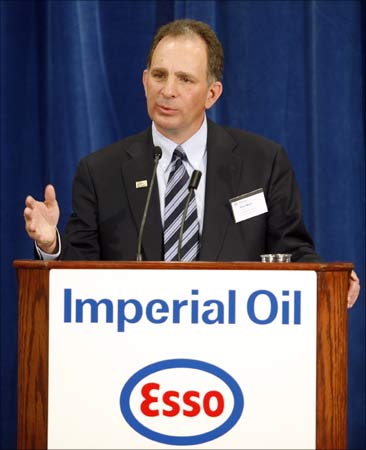
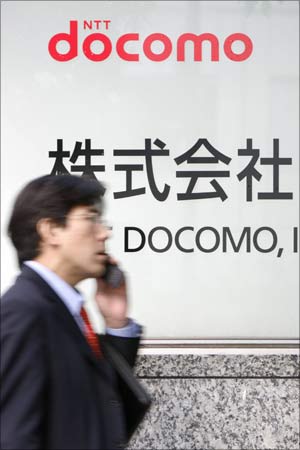
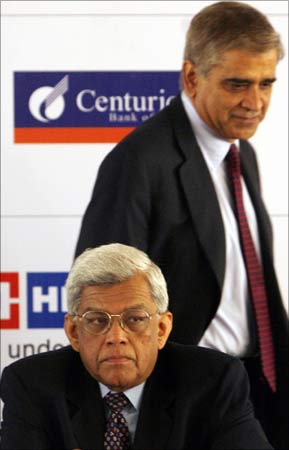
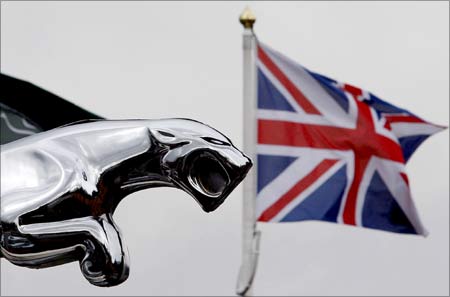
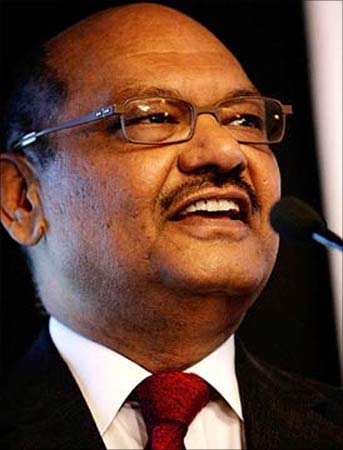

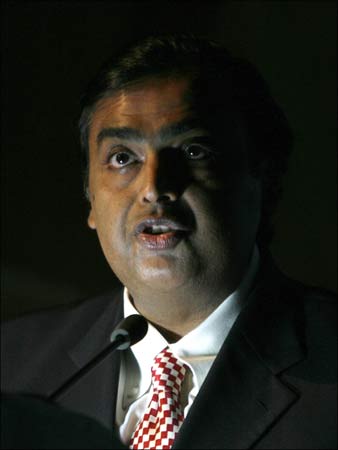
 According to persons close to the development, the private equity (PE) arm of Motilal Oswal Financial Services Ltd (MOFSL) bought the stake for around Rs 70 crore, valuing the company at Rs 350 crore. MOPE bought the stake through its India Business Excellence Fund (IBEF).
According to persons close to the development, the private equity (PE) arm of Motilal Oswal Financial Services Ltd (MOFSL) bought the stake for around Rs 70 crore, valuing the company at Rs 350 crore. MOPE bought the stake through its India Business Excellence Fund (IBEF).